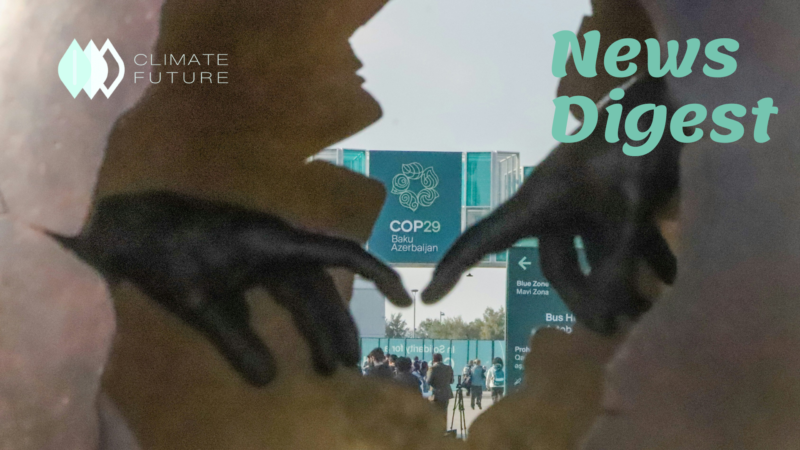Biodiversity and ecosystem protection highlighted on Mother Earth Day
Oceans are filled with plastic and becoming more acidic. Extreme heat, floods and wildfires have affected millions of people while we are still facing COVID-19 pandemic which is related to the health of the ecosystem. President Shahid encouraged the international community to take responsibility for damaged biodiversity and endangered human health and well-being. He called for a shift to green economies by referring to this year’s theme of “Harmony with Nature and Biodiversity: Ecological economies and Earth-centered law”. A UN senior official said the international community should use the targets and tools of the Paris Agreement on climate change and 2030 Agenda for Sustainable Development as blueprints for COVID-19 recovery. Climate change is not only man-made changes to nature but also crimes that disrupt biodiversity such as land-use change, deforestation, agriculture and livestock production and the growing illegal wildlife trade which can accelerate the speed of destruction of the planet. Since ecosystems support all life on earth, the planet and people will be healthier when we have healthier ecosystems. For this International Mother Earth Day, the UN promotes a shift to a better sustainable economy which is effective for both people and the planet.
📣 IMPORTANT ANNOUNCEMENT 📣 2022 ISIF Asia Grants now open for applications
ISIF Asia is now accepting applications for the 2022 funding cycle.
Applications are open to public and private sector organizations, academia, non-profits, and social enterprise organizations.
There are three thematic areas.
- Inclusion: Initiatives that help ensure everyone has meaningful access to the Internet, online applications and services
- Infrastructure: Initiatives to increase Internet speed, reduce maintenance and operational costs, and improve reliability and/or security
- Knowledge: Initiatives that develop technical capacity and/or research around Internet network operations for technical and non-technical audiences
In addition, three small grants (USD 30,000 each) will be made available across any program area to economies that have not previously received ISIF Asia grants. A full list of economies that ISIF Asia has supported is available in the link below.
Application Link – https://isif.asia/about-isif-asia/
NOTE: Applications are open now until 15 May 2022 at 11:59 AM (UTC +10). For application and selection criteria please familiarize yourself with the Funding Portal, where you will be able to submit your application.
The Funding Portal Link – https://isif.asia/apply/
In 2022, ISIF Asia will also include grants across all three programs to support innovative solutions to the environmental impact of the Internet. The Ian Peter Grants for Internet and the Environment will be made to commemorate the life and work of Ian Peter, Internet pioneer and environmental activist.
ISIF Asia’s IPv6 Deployment Grants are also open for organizations planning to deploy IPv6 in the Asia Pacific. IPv6 Deployment Grants range between USD 30,000 and USD 250,000.
ISIF Asia empowers organizations across the Asia Pacific region to research, design, and implement Internet-based solutions to solve Internet development challenges that support community development and growth. Since 2008, ISIF Asia has supported 99 grants and 29 awards, allocating over USD 5.4 million to 128 innovative initiatives across 27 economies.

Use sand resources ‘wisely’ or risk development fallout – UNEP report
Globally, sand is the most used resource after water. Sand and Sustainability: 10 Strategic Recommendations to Avert a Crisis leads a clear message that the world cannot endure to keep taking 50 billion tons from the ground and sea every year without major consequences. The new report found out that countries need to reconsider the dependency on sand as it must be regarded as a strategic resource. It provides guidance on changing to improved practices for managing and extracting the resources. According to the authors, sand is not only a construction material, but also a strategic resource with different roles in the environment. When sand is extracted from rivers and marine or coastal ecosystems, erosion, impacts on biodiversity and loss of protection against storm can cause. That leads to a threat to livelihoods through food production or fisheries, water supply and tourism industry. The governments, industries and consumers should set a price for sand which recognizes its true environmental and social value. The most cost-effective strategy for climate adaptation is keeping sand on coasts as it protects against sea level rise and storm surges. The report recommends banning sand extraction from beaches since it is essential for coastal resilience, the economy and the environment. Sand resources must be monitored and make sure that everyone involved in decisions related to its management by avoiding one-sided solutions.
Climate Hack 2022
Climate Hack is an award-winning hackathon proudly brought to you by Singapore International Foundation and Code for Asia, made possible by SAP4Good and National Youth Council Singapore. It is open to anyone aged 18 and above from China, India and ASEAN. No background is required as training will be provided. Aside from S$5,500 in total cash prizes to be won, mentorship and incubation opportunities are available to help promising teams take their projects to the next level. For more information, please visit https://climatehack.io
Be empowered to digitally ideate, develop and communicate winning ideas that would tackle the climate issues of today! At Climate Hack 2022, immerse yourself in a community of like-minded individuals to collaborate and find solutions for climate change, and in turn, contribute to Asia’s positive and sustainable development. Registration is FREE at https://climatehack.io/sign-up-now/
Submit by 15 May to participate.
#climatehack #betterworld #digitalhackathon #sustainabletech
More than one disaster a day looming without action on risk reduction, UN warns
The UN office for Disaster Risk Reduction (UNDRR) released the Global Assessment Report (GAR2022) before Global Platform on reducing risk which reveals medium to large scale disasters yearly over the past two decades. The GAR2022 blames the disasters on an ineffective risk based on “optimism, invincibility and underestimation” which leads to finance, policy and development decisions which increase the vulnerabilities and put people in danger. Disasters mostly impact developing countries and they lose an average of one percent of their GDP each year due to disasters, compared to less than 0.3% in developed countries. The highest cost is in the Asia-Pacific region which loses an average of 1.6% of GDP every year, especially the poorest countries that suffer the most among the developing countries. A lack of insurance to aid in recovery efforts is also the long-term impact of disasters. A growing area of risk and extreme weather events are the results of climate change. GAR2022 builds on the calls to develop adaptation efforts made at COP26 by showcasing how policy makers can make climate proof development and investments. This includes restructuring national budget planning to consider uncertainty and risk reforming financial and legal systems to intensive risk reduction.




I was extremely pleased to discover this site. I wanted to thank you for ones time for this particularly wonderful read!! I definitely loved every little bit of it and I have you bookmarked to see new stuff on your blog.